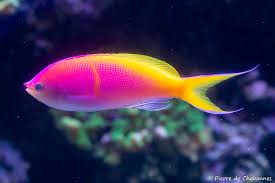
Dragons have long been an integral part of Chinese culture, embodying power, wisdom, and good fortune. Their presence is felt across many aspects of daily life, from art and architecture to literature and festivals. One of the most intriguing areas where dragons have left their mark is in the world of traditional Chinese games and sports. This article delves into the influence of dragons in various traditional Chinese sports, exploring their symbolic importance and how they are intertwined with the cultural and spiritual fabric of these activities.
Dragons in Traditional Chinese Games
Chinese traditional games have a rich history that spans thousands of years, with dragons appearing as both symbolic figures and central elements in many of these activities. Whether represented in the form of motifs, metaphors, or actual gameplay mechanics, the dragon plays a crucial role in conveying cultural values such as strength, agility, and unity.
1. Dragon Boat Racing
One of the most famous and widely recognized traditional sports associated with dragons is Dragon Boat Racing. Originating from ancient China, this exciting and competitive sport involves teams paddling in long, narrow boats that are ornately decorated with dragon heads and tails. The race is held during the Dragon Boat Festival, which takes place on the 5th day of the 5th month of the lunar calendar.
The dragon boat symbolizes strength, teamwork, and the harmonious connection between humans and nature. The dragon, as a symbol of protection and power, is believed to bring good fortune and success to the participants. The race itself is a modern interpretation of ancient rituals performed to appease the dragon and ensure protection from evil spirits.
Participants often view the competition as not just a physical contest but also as a spiritual one. The rhythmic paddling and synchronized movements are said to emulate the dragon’s grace and power, as well as its connection to the water element, which is integral to the dragon’s symbolism in Chinese culture.
2. Chinese Chess (Xiangqi)
In traditional Chinese games such as Xiangqi (Chinese chess), dragons appear symbolically in the design of the game and in the strategies employed by players. The game board is often associated with the ancient Chinese military strategy, and while there are no literal dragon pieces, the game’s philosophical depth reflects the same kind of mysticism and strategic thinking that dragons represent.
In the game, powerful moves or combinations are often referred to using dragon imagery, invoking the idea of strategy, control, and influence that mirrors the legendary dragon’s role in Chinese mythology. In ancient China, scholars and military leaders believed that understanding the nature of the dragon’s power was essential for success in both governance and battle, concepts that are subtly echoed in the intricacies of Xiangqi.
Dragons in Traditional Chinese Martial Arts
Traditional Chinese martial arts have a deep connection to animals and mythical creatures, and the dragon is one of the most prominent of these symbols. The Dragon Style (Longjiaquan), a specific martial arts style, is based on the characteristics and movements of the dragon. Practitioners of this style aim to emulate the agility, power, and fluidity of the dragon, incorporating smooth, twisting motions that resemble the serpent-like movements of the creature.
The dragon’s influence is also seen in other martial arts forms, such as Tai Chi and Kung Fu, where the dragon symbolizes the balance of strength and flexibility, and the fluidity between offensive and defensive tactics. In Kung Fu, movements named after animals, such as the Dragon Claw, reflect the agility and formidable power associated with the mythical creature.
The practice of martial arts in China is not only about physical strength but also about cultivating one’s spirit, and the dragon, as a symbol of spiritual mastery, reinforces this connection between body and mind. The mastery of a martial art style, just as with the mastery of the dragon’s power, requires patience, discipline, and respect for nature’s balance.
Dragons in Traditional Chinese Dance and Performance Arts
Dragons also play a central role in traditional Chinese dance and performance arts, particularly in the Dragon Dance, which is often performed during major celebrations and festivals, including the Chinese New Year. The dance involves a team of performers who manipulate a long, flexible dragon figure, making it appear as though the dragon is moving through the streets.
In this energetic and vibrant performance, the dragon is believed to bring good luck and fortune to the community. The dance symbolizes the dragon’s control over the elements and its power to protect the people from harm. The performers mimic the dragon’s undulating movements, symbolizing the fluidity and grace of the mythical creature.
The Dragon Dance is often accompanied by loud drumming, cymbals, and other traditional instruments, creating an atmosphere of excitement and reverence. This event serves as a cultural expression of the community’s unity, strength, and desire to invite prosperity, much like the revered dragon in Chinese mythology.
The Spiritual and Symbolic Importance of Dragons in Sports
Beyond their presence in games and performances, dragons hold profound symbolic meaning in the realm of Chinese sports. In Chinese culture, the dragon is often seen as a spiritual protector, guiding athletes to victory and success. The belief that the dragon embodies a connection between the physical and spiritual worlds is evident in many traditional sports where victory is seen as a divine blessing rather than merely a result of physical prowess.
In sports like archery, wrestling, and even in the historical Qin (ancient Chinese cavalry), the dragon has symbolized victory over adversities and the conquering of challenges. The legendary tales of emperors or warriors who called upon the dragon’s protection and strength reflect the same spirit found in athletes who believe in the power of the dragon to overcome obstacles.
In the modern era, while many traditional Chinese sports are still practiced, the dragon’s influence continues to resonate in the cultural values associated with competition: teamwork, perseverance, and unity. The symbolism of the dragon encourages athletes to connect with the deeper meanings of their activities, viewing sports not only as physical competition but also as a spiritual and communal experience.
Conclusion: The Enduring Influence of Dragons in Traditional Chinese Games and Sports
The dragon remains one of the most powerful and enduring symbols in Chinese culture, and its influence on traditional Chinese games and sports is a testament to its importance in everyday life. Whether through the competitive spirit of Dragon Boat Racing, the strategic depth of Chinese Chess, the agility of martial arts, or the celebration of unity and prosperity in the Dragon Dance, the dragon continues to shape the way sports and games are practiced in China.
As China’s traditional games and sports evolve, the dragon remains a central figure in expressing the nation’s cultural identity, values, and spiritual beliefs. Through its presence in these activities, the dragon not only inspires physical feats but also reinforces the importance of unity, strength, and perseverance in the pursuit of success and good fortune. The influence of the dragon in these traditional sports is a powerful reminder of the creature’s deep connection to Chinese culture and its ongoing legacy in shaping the country’s sports and entertainment traditions.









